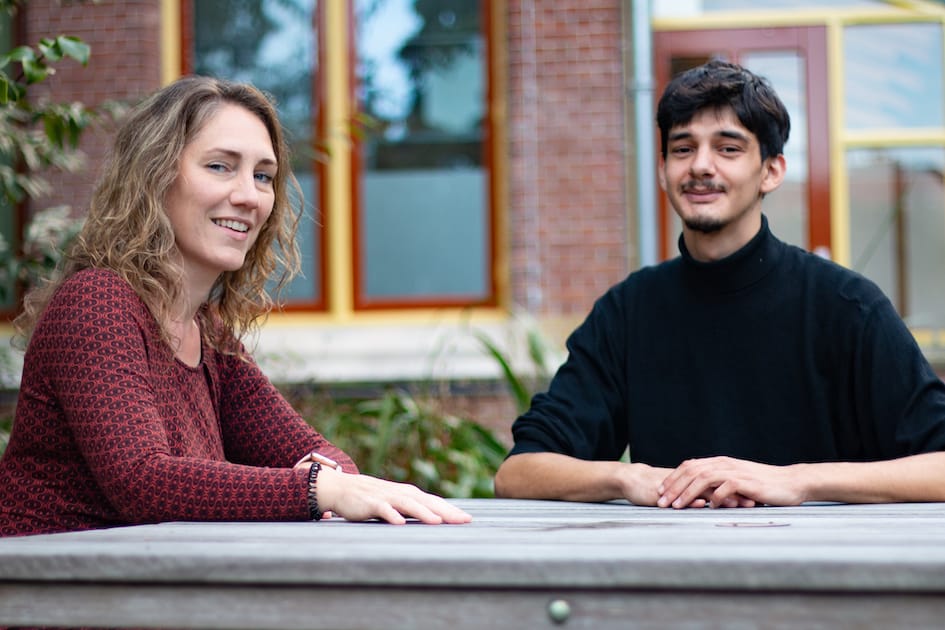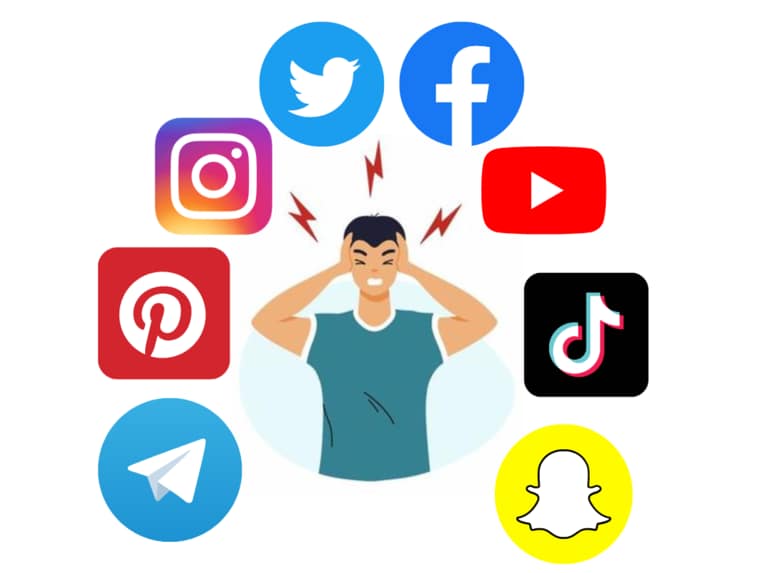
Buddy program for persons with a severe mental illness
Dr. Lisette van der Meer is an assistant professor at the department of clinical and developmental neuropsychology and a senior researcher at the department of psychiatric rehabilitation at Lentis Psychiatric institute. She developed a buddy program to increase connectedness between people with a serious mental illness (like schizophrenia or bipolar disorder) and society. By coupling psychology students to patients or service users (a less stigmatising term for people who ‘use the psychiatric services provided by the psychiatric care facility’), they hope to stimulate a reconnection with society for service users while at the same time create a learning opportunity beyond the textbooks for students. Mindwise interviewed Dr. Lisette van der Meer and Justin L. Abu Hoof, a psychology student who supports Lisette in setting up the buddy program and volunteers as a buddy of Nick, who has been a service user of Lentis for over 5 years now.
What is the buddy program about?
Dr. van der Meer: In the program, buddies meet approximately once a week and spend time together. How they spend this time is up to the buddies, but this can vary from taking a walk, to watching a movie, playing a game or cooking a meal. The idea is that when the buddies undertake activities together, they learn about themselves as well as their buddy. In that sense, becoming a buddy gives valuable insights for both the student and the service user. We ask students to be available for at least a few hours per week for at least a year, to create some continuity for the service users. We organize intervision meetings for students to share their experiences and support them when they encounter difficulties. In the end, we hope that the experience for both students and service users results in a positive and ‘normal’ contact based upon mutuality between people receiving psychiatric care and students.
Why did you join the buddy program?
Justin: Dr. van der Meer and I first met within the context of doing a research internship as part of a course in the Excellence Programme. During our interview, we had an open discussion about what I missed during my years of studying Psychology: attention for individual differences in people with psychiatric problems. More specifically, I felt that we learned about various psychological topics from a very scientific, statistical and general perspective (i.e. learning about mental disorders and their symptoms in terms of “averages”). I expressed the need to look beyond our textbooks and learn more about the individual behind the disorder. This is how I became introduced to the buddy program.
Why are you so enthusiastic about the project?
Dr. van der Meer: I really like to introduce students to the field of psychiatry, and particularly to the group of service users who need intensive long term psychiatric treatment. I enjoy the stories and enthusiasm of both students and service users. Students do not seem to be discouraged by the difficulties in activating service users, but are mostly dealing with this very well. Buddies tend to be genuinely interested in their partner and often enjoy each other’s company. I think the key here is that the project emphasizes ‘normality’, mutuality and open dialogue between buddies, which may stimulate self-reflection and rediscovery of talents, characteristics and enjoyable activities that may have been long lost for the service users.
Can you say something about your first meeting with your buddy?
Justin: I met my Buddy, let’s call him Nick, shortly after my interview with dr. van der Meer. Before I met Nick, I had a one-to-one introduction meeting with a psychiatrist who explained his issues. I was very excited to meet Nick. At the same time, I was also anxious to do or say anything that could hurt Nick’s feelings. This feeling almost entirely vanished when I was introduced to him. Even if I was introduced to his mental illness at first, and knew (theoretically) many things about it, I tried to leave my psychological knowledge at the doorstep. We took a long walk along the grounds of Lentis, and both of us were very keen on getting to know more about each other on a mutual basis. My focus and intention were not getting to know more about his illness, but what his interests are; what he is passionate about – ordinary things I would also ask other people or friends that do not suffer from a mental illness. And then, naturally, he opened up about his life story: for example, how he became a service user at Lentis, and about how he thinks and feels about his mental illness.
Can you describe a funny moment? and a difficult moment?
Justin: A really heart-warming moment was when I spent time with Nick in the common room where we met other service users. We were hungry and ordered food. Unlike his case description that was shared with me, he is indeed shy but very sociable and caring for others needs. He immediately shared our food with others that were hungry. The positive responses to his generosity (by other service users and me) made him intrinsically happy, and he became instantly more confident in participating in group conversations.
During our buddyship, one difficult moment was when Nick asked me for drugs. Knowing that he has a history of drug abuse, I declined his request and gave him an honest reason: that this could be a trigger for his condition and that I, as his Buddy, cannot reinforce drug abuse. However, I not merely declined his request but also tried to find out more about why and when he feels the need to take drugs. So I turned a “difficult” moment into a deeper understanding of his feelings and issues which resulted in a much stronger bond than we had before.
Which aspects are bottlenecks? And why?
Dr. van der Meer: An important bottleneck is finding buddies for non-Dutch speaking students. Though there are service users who can and want to speak English, it is not the majority. So it does sometimes take time before we can couple international students to a buddy. Nevertheless, we have also been able to couple some international students who speak languages like Farsi and Mandarin to service users, which is really fantastic for service users who are not able to speak in their native language all that often.
What does science say about buddy or activities programs for the severely mentally ill?
Dr. van der Meer: In fact, there is not a lot of research in this field. In the literature, this is called ‘befriending’. There is some evidence that for people who have regular contact with volunteers the amount of social contacts increases (Priebe et al., 2020). We developed an intervention or game that can support the buddies in coming up with activities and stimulate rediscovery of identity. Preliminary results indicate that this game may indeed result in increased reflection, mutuality and stimulate recovery of identity (van der Meer et al., 2021), but we are currently working on improving that tool and increasing our understanding of its necessary ingredients.
Do you have advice for buddies-to-be? What kind of mindset do buddies need?
Justin: The most important advice I can give future buddies is to be open about yourself and to have the mindset of mutuality. I never tried to “help” Nick by applying my psychological knowledge – I was always well aware that I am not trained for this, and that there are enough health care workers who care for his mental condition. My primary goal was to not see my Buddy as a person with a mental disorder. I wanted to gain a new friend – and I am happy to have reached that goal. Nick is my friend and we do a lot of things together; from taking walks in nature to going shopping in Groningen and texting frequently. If you have the mindset of mutuality, you will very quickly realise that this is the way to foster each other’s interests and passions. Ultimately, you will strongly contribute to the resocialisation process of your Buddy.
The final question is from Dr. van der Meer: “Justin, what has participating in the project brought you?”
Justin: Participating in this project and further developing this project for other Psychology students with dr. van der Meer has brought me not only valuable learning experiences. The project changed my whole perspective on Psychology as a discipline. What struck me the most is that Nick is really not a typical case of his diagnosed mental illness. He does suffer various symptoms but his core personality strongly deviates from what we have learned during our Psychology programme. Unlike what is written in the DSM-V and stereotypical case descriptions, I realised that Nick is a person like you and me – a person with passions, dreams, interests, and issues. Although patients are usually categorised according to the DSM-V, I strongly desire to focus more on individual differences – to not only see a “patient that has a mental disorder”, but first and foremost to see a “person with his or her own identity, character, passions, dreams and interests”.
Interested?
We are currently looking for new buddies, particularly Dutch speaking buddies. If you would like to join the program or would like to receive more information, please contact Lisette (l.van.der.meer@rug.nl) or Justin (j.abu.hoof@student.rug.nl)




2 comments